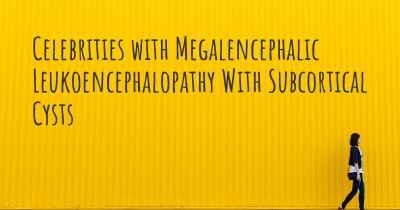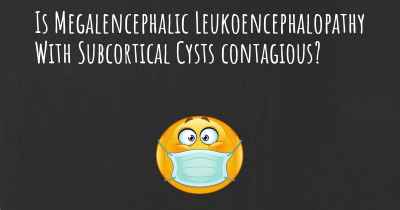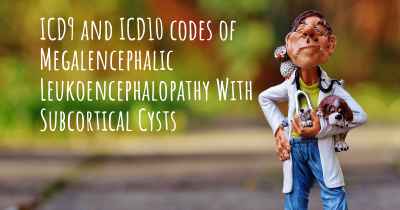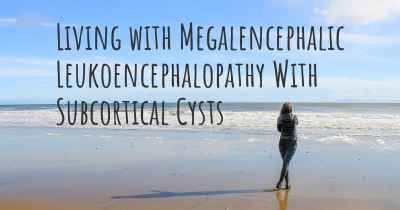Megalencephalic Leukoencephalopathy With Subcortical Cysts and depression
Can Megalencephalic Leukoencephalopathy With Subcortical Cysts cause depression? Could it affect your mood? Find out how Megalencephalic Leukoencephalopathy With Subcortical Cysts can affect your mood.

Megalencephalic leukoencephalopathy with subcortical cysts (MLC) is a rare genetic disorder that affects the brain and can lead to various neurological symptoms. One of the common symptoms associated with MLC is depression, which can significantly impact the quality of life for individuals with this condition.
MLC is characterized by the presence of fluid-filled cysts in the subcortical white matter of the brain. These cysts can cause progressive damage to the brain tissue, leading to a range of neurological problems. The exact cause of MLC is still not fully understood, but it is known to be caused by mutations in certain genes.
Depression is a common mental health condition that affects millions of people worldwide. It is characterized by persistent feelings of sadness, loss of interest or pleasure in activities, changes in appetite or sleep patterns, and difficulty concentrating or making decisions. In the case of MLC, depression can be a result of the neurological changes and challenges associated with the condition.
Living with MLC can be challenging, both physically and emotionally. The presence of subcortical cysts in the brain can lead to a range of neurological symptoms, including motor difficulties, cognitive impairments, and psychiatric problems such as depression. These symptoms can vary in severity and may worsen over time.
It is important for individuals with MLC and their families to seek appropriate medical and psychological support. Treatment for depression in the context of MLC may involve a combination of medication, therapy, and lifestyle changes. Antidepressant medications can help alleviate symptoms of depression, while therapy, such as cognitive-behavioral therapy (CBT), can provide coping strategies and support for managing the emotional challenges associated with the condition.
Support from healthcare professionals, family, and friends is crucial for individuals with MLC and depression. It is important to create a supportive environment that promotes understanding, empathy, and open communication. Additionally, engaging in activities that bring joy and fulfillment can help improve overall well-being.
Research and advancements in the understanding of MLC and its associated symptoms, including depression, are ongoing. Scientists and medical professionals are working towards a better understanding of the underlying mechanisms of MLC and developing potential treatments to improve the quality of life for individuals affected by this condition.
In conclusion, MLC is a rare genetic disorder characterized by subcortical cysts in the brain, which can lead to various neurological symptoms. Depression is a common mental health condition that can occur in individuals with MLC due to the challenges and changes associated with the condition. Seeking appropriate medical and psychological support, creating a supportive environment, and engaging in activities that bring joy can help individuals with MLC and depression lead fulfilling lives.








